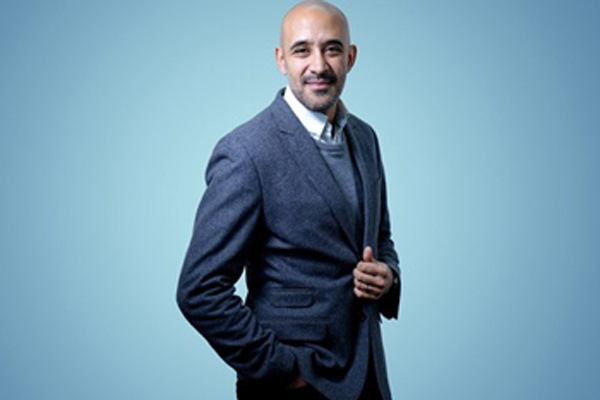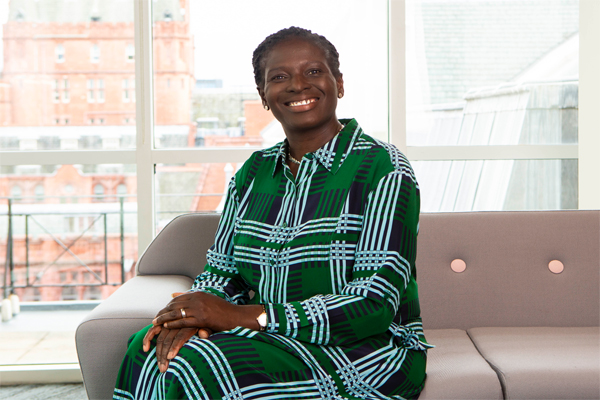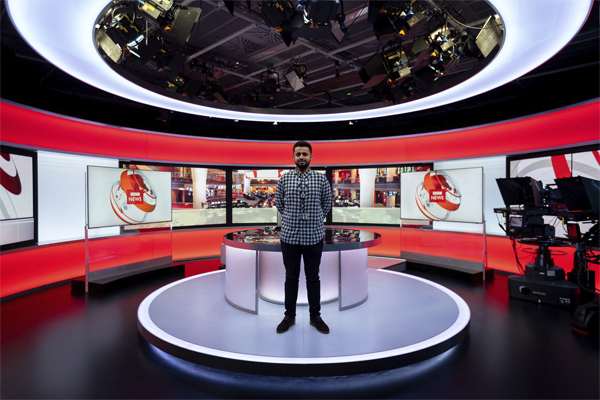UK broadcasters have committed to avoiding the use of the BAME acronym – short for Black, Asian and minority ethnic – whenever more specific terms are available. The move is part of the creative industry’s wider focus on increasing representation and boosting diversity, inclusion and equity.
The BBC, ITV, Channel 4 and Channel 5/Viacom CBS UK have agreed that the acronym will be avoided, wherever possible, in internal and external corporate communications and editorial news content. ITN, which produces broadcast news programmes for ITV, Channel 4 and Channel 5/ViacomCBS UK, has also confirmed a move away from the acronym in its newsrooms and corporate communications.
LANGUAGE, RACE & IDENTITY MATTERS
“ITN recognises the vital importance of using clear, specific language and our newsrooms moved away from using the acronym last year,” stated ITN’s CEO Deborah Turness. “Language matters, especially when it comes to race and identity. This is an important area of collaboration and continuous improvement for ITN, and working with our teams and EMpower network, we are embedding the recommendation from the Sir Lenny Henry Centre in all our communications.”
The move towards specificity, and away from a catch-all term, paves the way for greater acknowledgement of the unique experience of people from different ethnic backgrounds and offers insight into the issues facing specific groups. It is expected to inspire similar action across the creative industry.
The decision, made by the broadcasters follows publication of an indepth industry report, carried out by the Sir Lenny Henry Centre for Media Diversity (LHC). The recommendation was laid out in the LHC, which includes in-depth interviews with journalists, academics, network groups, writers and thought leaders, as well as audience focus groups and thorough linguistic analysis. The LHC research found that there was a lack of trust around the collective term, due to the belief that it has been used to hide failings in the representation of specific ethnic groups.
ACCURATE REFLECTION OF RACIAL DIVERSITY
The authors of the report, including Sarita Malik, Marcus Ryder, Stevie Marsden, Robert Lawson and Matt Gee, from the LHC, said they “are very happy that British broadcasters are taking the issue of racial language seriously and were happy to undertake this piece of work”. “We believe that while there can still be utility in the use of collective terms, the priority should always be to ensure clear and simple communication that is trusted by audiences. We hope that our report will help broadcasters to achieve this, and as language develops, they regularly revisit this and related issues,” they shared in a joint statement.

“We’re proud to have collaborated with our broadcasting partners and the Sir Lenny Henry Centre for Media Diversity on this important work,” stated Miranda Wayland, BBC Head of Creative and Workforce Diversity and Inclusion. “Ensuring that the rich and complex lived experiences of individual ethnic groups are accurately reflected and truthfully portrayed on air and properly recognised in our workplace speaks to our ongoing commitment and investment in greater inclusion.”
AVOIDING INADEQUATE CATCH-ALL TERMS
“We were delighted to work with the other broadcasters on this very interesting and useful piece of research from the Sir Lenny Henry Centre for Media Diversity,” added ITV’s Group Director of Diversity and Inclusion, Ade Rawcliffe. “Language plays an important role in building trust and confidence in organisations. We will use the findings to build on our internal race fluency training, which will help us to further embed an inclusive culture at ITV as we work to deliver the actions that we have committed to in our Diversity Acceleration Plan.”

Zaid Al-Qassab, Channel 4’s Chief Marketing Officer and Executive Leader for Inclusion & Diversity, also welcomed the desire within the industry to stop using “such vague terminology”. “At Channel 4 we began to move away from using the acronym last year and, in consultation with members of our employee rep group, The Collective, we’ve followed their recommendation to use the terminology ‘ethnically diverse’,” pointed out Al-Qassab. “I’m sure this is an area which will continue to develop, we need to keep talking and looking for more inclusive language which acknowledges our uniqueness and experiences as individuals.”
MOVING TOWARDS AN EQUITABLE FUTURE
As an organisation “which has long grappled with the use of inadequate catch-all terms to describe ethnic diversity, we’re really proud to support the findings of this important research study from the Sir Lenny Henry Centre for Media Diversity”, highlighted Wincie Knight, Vice President, Global Inclusion Strategy at ViacomCBS UK. “As we strive towards an equitable future for all, it’s critical that our voices are heard as specific groups; avoiding the use of acronyms is the first step towards the transparency required to achieve that goal.”
The full report findings can be accessed on the LHC website here.








































